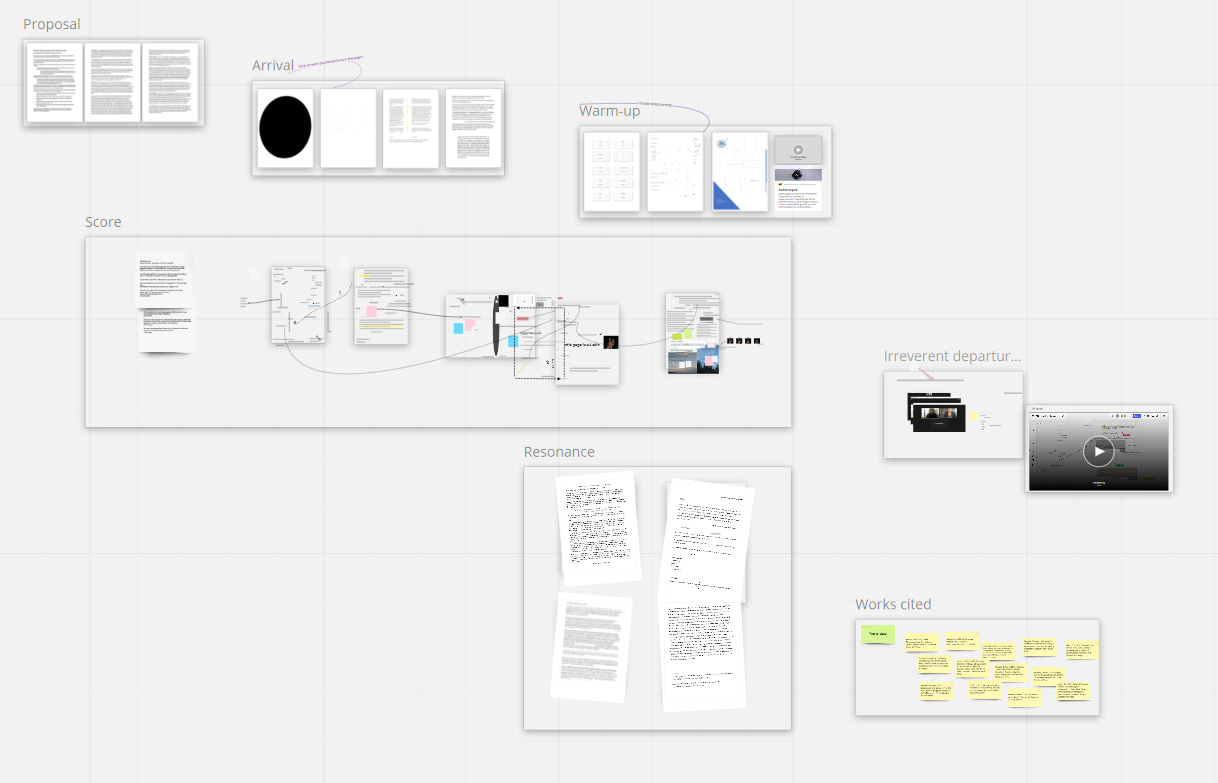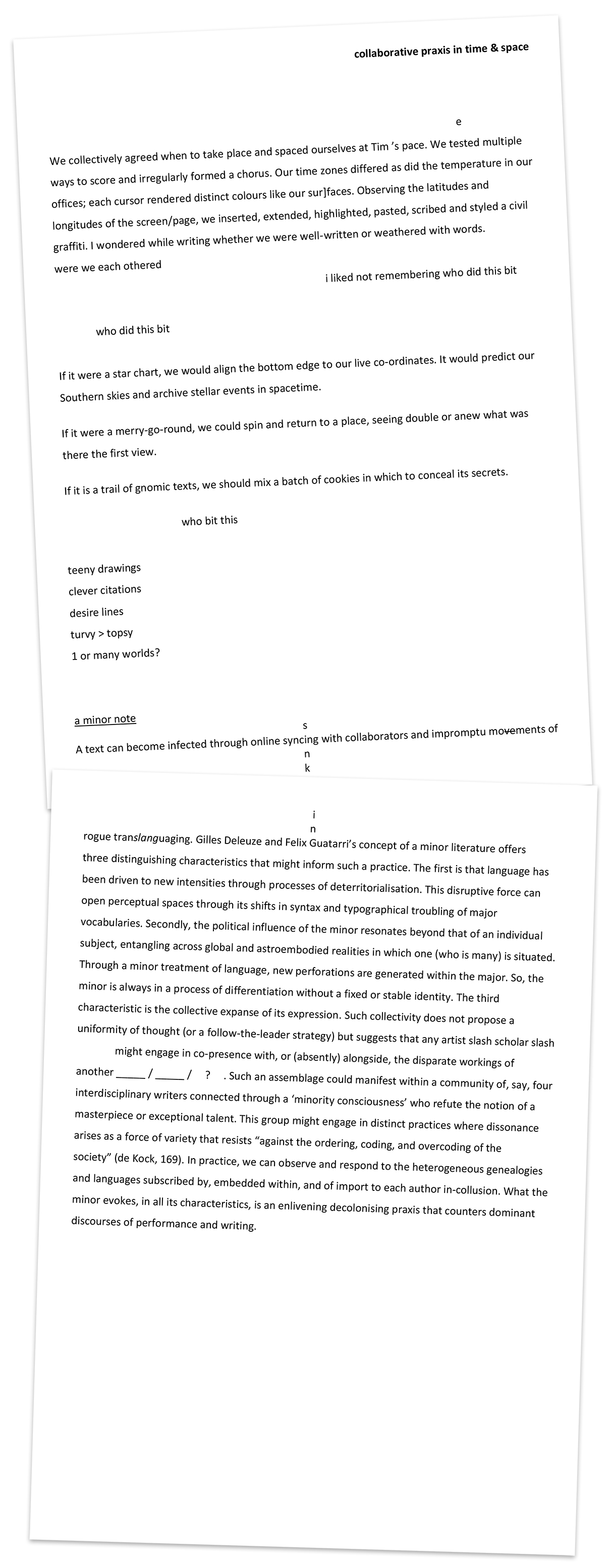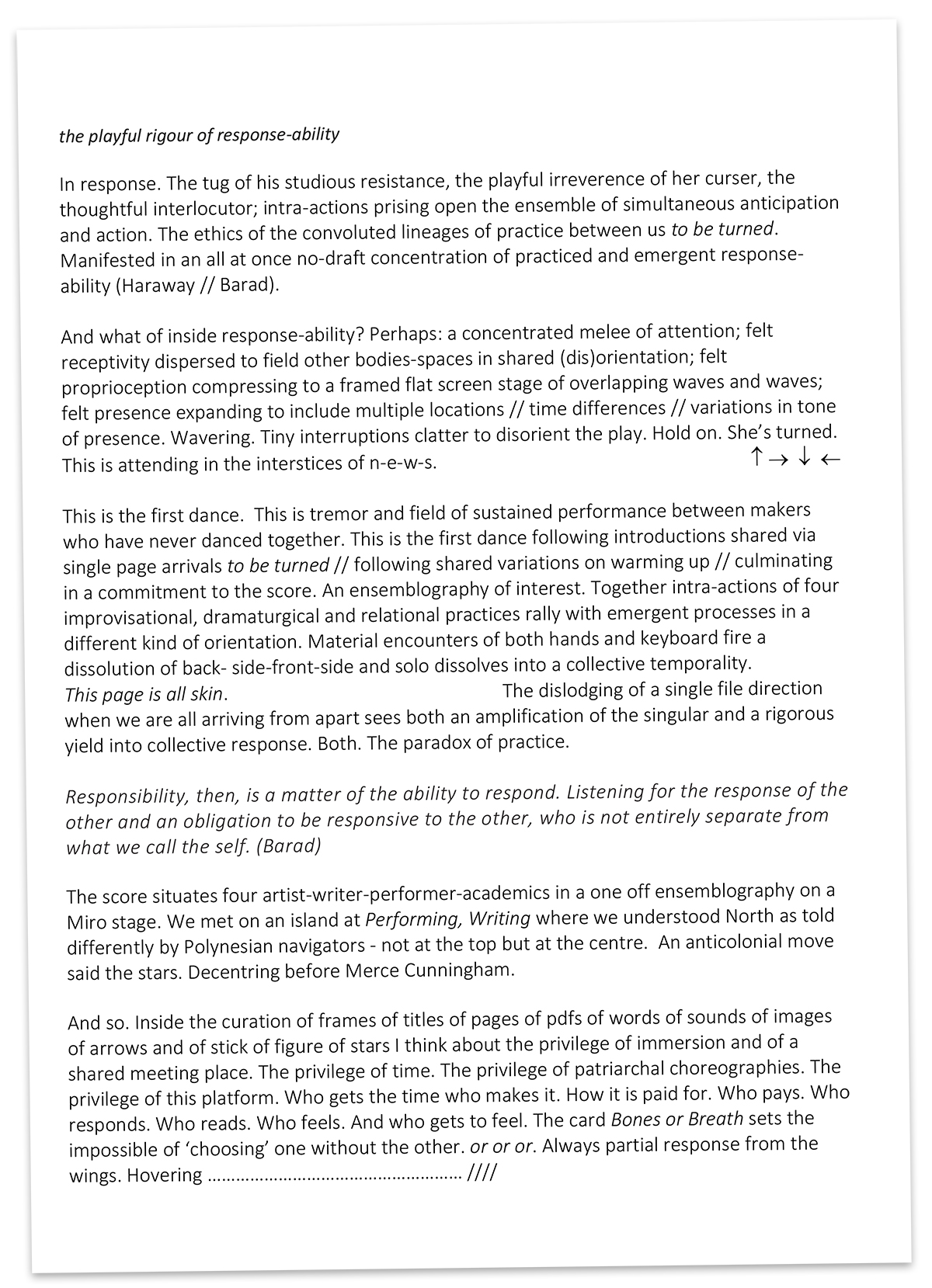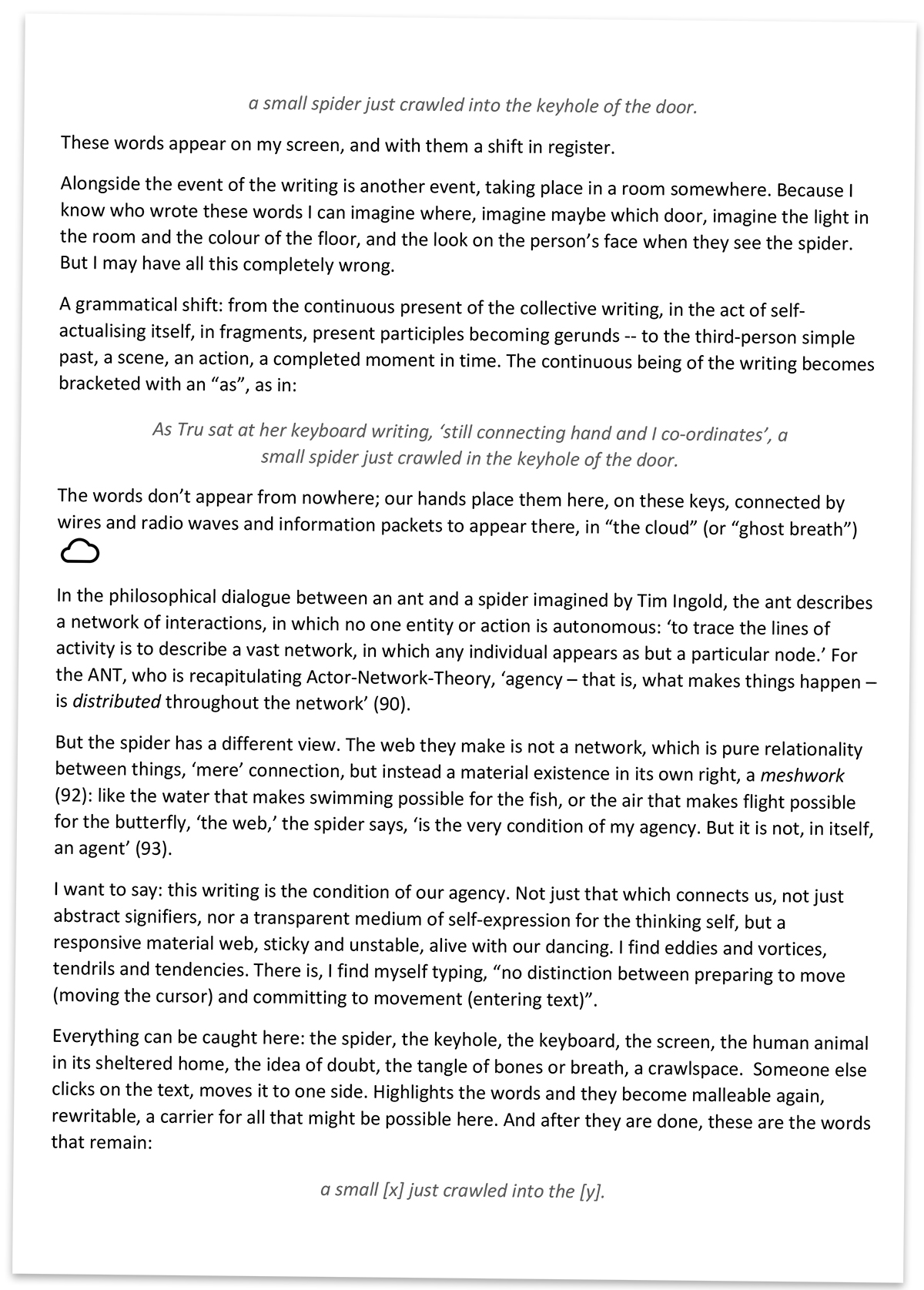
The proposition is this: four ‘performance writers’, each with their distinctive practice, use the digital and material page as a space for collaborative performance-making and cooperative thinking.
We enter the page as studio. Page as interval. Page as middle and entrance and ending and overlap.
We approach writing as dancing (Pollitt). As continuation, as doing, as inside renderings of emergent score, tone, and timing.
We approach writing as wearing masks, specifically, the masks of Dionysus as were once hung up as lucky charms in Mediterranean vineyards and would swing around in the breeze.
We approach writing guided by ‘flowers and songs’ as encountered in the essay by Indigenous scholar and storyteller C. F. Black, ‘The Land is the Source of the Law’.
We approach writing as the balance between the planned and the contingently arising that renders structures, bodies, and materials as infinitely unpredictable: ‘an extreme form of speculation, one that grasps the work from the perspective of its contingent materials’ (Negarestani 15).
We approach writing by staging the event of writing, foregrounding ‘the transformative play of text as performance’ (Allsopp 79) and the conflicts and tensions that writing may manifest at the level of form, not just content (Bergvall).
We propose to follow the shape of a typical collaboration, with the use of instructional tasks or scores for other performers/writers as its core method:
In this way, rather than writing about another process of performance-making, the writing itself becomes a process of collaborative making, at the same time as it reflects on making collaboration.
As remote practitioners attending through the digitas, we encompass the griefs, gifts, and challenges encountered during a time of global pandemic. We oscillate through alternate time zones to form and reassemble, perform our ensemble, with new currencies of exchange.
click to turn
click to turn




Ahmed, Sara. Queer Phenomenology: Orientations, Objects, Others. Duke University Press, 2006.
Allsopp, Ric. “Performance Writing.” PAJ: A Journal of Performance and Art, vol. 21, no. 1, 1999, pp. 76–80.
Barad, Karen. “Interview with Karen Barad.” New Materialism: Interviews & Cartographies, edited by Rick Dolphijn and Iris van der Tuin, University of Michigan Press/Open Humanities Press, 2012, pp. 48–70.
Bergvall, Caroline. “What Do We Mean By Performance Writing?” Symposium of Performance Writing, Dartington College of Arts, 12 April 1996.
Black, C. F. The Land Is the Source of the Law: A Dialogic Encounter with Indigenous Jurisprudence. Routledge, 2011.
Bottoms, Stephen, and Matthew Goulish, editors. Small Acts of Repair: Performance, Ecology, and Goat Island. Routledge, 2007.
Calvino, Italo. Invisible Cities [1972]. Harcourt Brace Jovanovich, 1978.
de Kock, Petrus. “The Minor Literature of Breyten Breytenbach.” Animations of Deleuze & Guattari, edited by Jennifer Daryl Slack, Peter Lang, 2003, pp. 163–196.
Deleuze, Gilles, and Felix Guattari. Kafka: Toward a Minor Literature, translated by Dana Polan. University of Minnesota Press, 1986.
Haraway, Donna J. Staying with the Trouble: Making Kin in the Chthulucene. Duke University Press, 2016.
Ingold, Tim. “When ANT Meets SPIDER: Social Theory for Arthropods.” Being Alive: Essays on Movement, Knowledge and Description, Routledge, 2011, pp. 89–94.
Negarestani, Reza. “Contingency and Complicity.” The Medium of Contingency, edited by Robin Mackay, MIT Press, 2011, pp. 11–15.
Pollitt, Jo. Writing as Dancing: The Dancer in Your Hands, a Novella <>. PhD dissertation, Edith Cowan University, 2019.
Schmidt, Theron. “What’s Left on the Page.” Performance Research, vol. 23, no. 4–5, 2018, pp. 343–46.